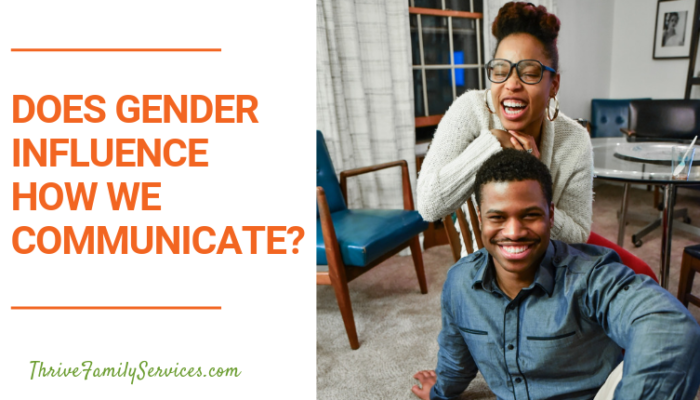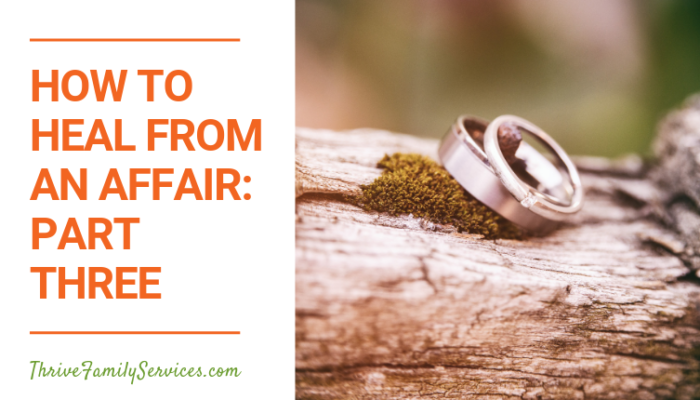Couples often wonder, “Why is she telling me the same thing over and over?” or “Did he hear anything I just said?”
It can be frustrating when you feel like the messages you are sending your partner aren’t being received. And it can be just as frustrating when you don’t understand what your partner wants from you.
These differences in communication can stem from a number of different factors. Cultural factors play a big part in how we communicate with other people. But studies in psychology, linguistics, and sociology show that a person’s gender also plays a big role in how they communicate.
These differences often become more apparent in heterosexual relationships. When researchers looked at interactions between heterosexual couples, they noticed some general differences in the ways that men + women communicate. However, while it can be helpful to know how the average male and female use communication, it’s important to note that these findings are not rules.
Obviously, not everyone in a specific gender category is the same, and there are also more genders that people identify with than just male or female. And this is not restricted to heterosexual couples even if it is more common. People in LGBTQ+ relationships also experience miscommunication.
If you find that you don’t fit into the description of the average way that your identified gender communicates, it does not mean there is something wrong. Rather, take these findings as helpful things to think about, or tools to use. When you and your partner get frustrated in miscommunication, it can be comforting to know that other couples go through the same thing.
In other words, miscommunication errors don’t always happen because there is something wrong with your partner or your relationship.
The purpose of this research is to bring awareness of the generalities in the ways that different genders use communication. Simple awareness can make a huge difference for the ways couples communicate with each other. Even if you + your partner don’t struggle with communication, you can apply this knowledge to other relationships in your life!
Below are some findings from various studies regarding how gender influences the way we communicate:
- Biologically, females are better at processing verbal communication than males. It takes men an average of seven times longer to process high-intensity verbal communication than women.
- Biologically, women are better at self-soothing after emotional conversations than men. Once a conflict has been resolved, women can usually move on and find peace after a solution is found. Whereas men benefit from “recovery time” after experiencing lots of emotion.
- Emotionally, men focus more on the long-term benefit and practicality of the information being shared when communicating (i.e. How will this help me in the future? What’s the point of this?). Meanwhile, women focus on the feelings and emotions being expressed when communicating (i.e. What is he/she feeling about this? What can I do to make them feel better?).
How is the approach to communication for men + women different?
- Males tend to believe that verbal communication should have a clear purpose. In other words, they are seeking the root of what is being shared. They use conversation to share information.
- On the other hand, females tend to use communication as an opportunity to share what’s on their mind or vent. They use conversation to increase intimacy.
- When females communicate emotion, they are usually figuring it out as they speak. They use conversations to figure out exactly what it is they are feeling. Men usually keep emotions inside or have their emotions processed before expressing them out loud.
- Men use communication to solve problems. They usually assume that offering solutions to what is being shared with them is helpful. They will often interrupt women when they think they have enough information just to offer their solution.
- Women on the other hand often just want to use communication as a release of negative feelings. Similarly, when responding, women tend to want to share the experience with the person they are talking to. They make take problems on as their own in order to show the other person that they care.
- When telling stories, men have typically already sorted through the details mentally. They usually only verbally share what they deem to be essential to the story. Meanwhile, women are usually exploring and organizing their thoughts as they speak.
Do men + women communicate for the same purpose?
- When women are feeling down, they want to express difficult emotions verbally. They feel most supported when other people ask caring questions or express heartfelt concern.
- Men will usually avoid conversation when they are feeling down. In fact they often withdraw further when other people press them with questions or comments of concern.
- Men are most likely to shut down conversation when they feel like they are being told what to do. Women are most likely to shut down conversation when they feel like their problems aren’t validated or taken seriously.
It could be an enlightening conversation to go over these findings with your partner and share which ones describe you. Knowing the intention behind what your partner is communicating can improve the effectiveness!
If communicating effectively with your partner is something that you struggle with, seeing a couple’s therapist can be helpful. Learning new ways to interact with each other can be really beneficial and bring you and your partner closer to each other.
Ready to fine-tune your communication skills and become a better listener? Our Denver couples counselors are ready to help. Call us at 303-513-8975, X1, or schedule online today:
This blog post was brought to you by couples therapy specialist Emma Abel.




